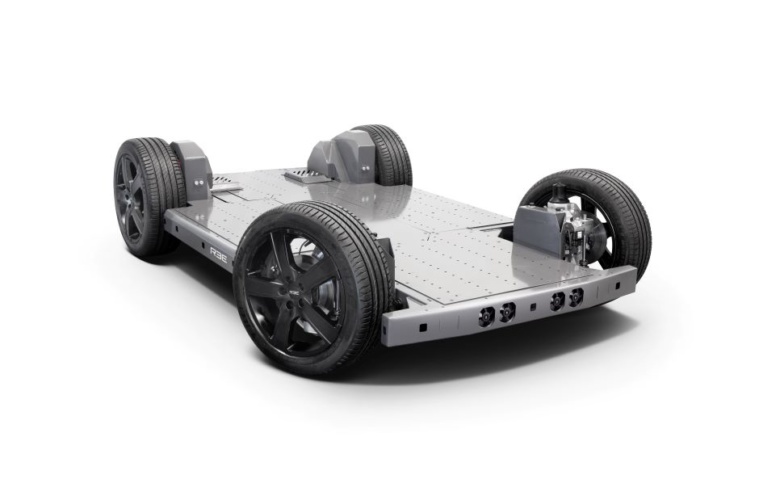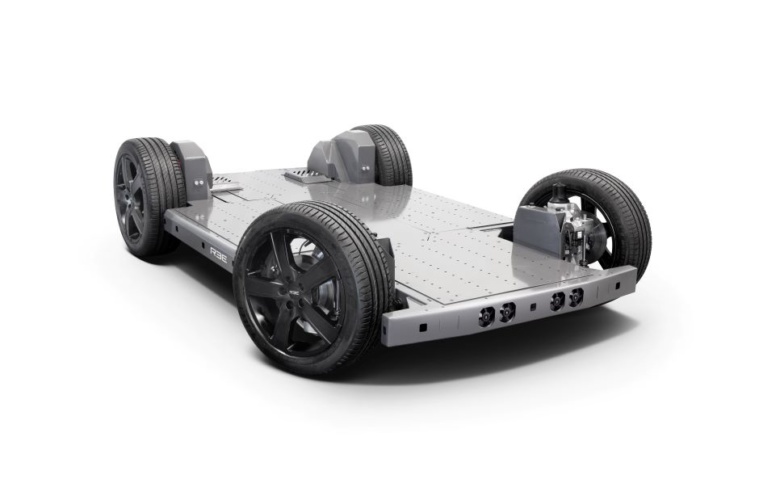A completely flat chassis and drivetrain components housed in a vehicle’s wheels could give automotive designers limitless freedom when creating tomorrow’s electric vehicles.

This is the claim of REE Automotive, an Israeli start-up whose REEcorner architecture integrates components including braking, electric-motor, steering, and suspension into the wheel before being integrated into a flat, battery-packed chassis dubbed REEboard.
The Engineer Car Review: BMW i8
Williams gets its skates on to develop electric vehicle platform
According to company CEO and co-founder Daniel Barel, REE is the only company in the world that provides steering, braking and drive by wire on a single wheel. In-wheel condition monitoring is AI-driven and each REEcorner module can be swapped out in under 20 minutes if a malfunction cannot be fixed with an OTA (over the air) solution.
“Each REEcorner is completely independent, there’s nothing connected physically to other corners,” he said. “The degrees of freedom we’ve got by doing that are unparalleled by anybody else’s.”
The future is going to be powered by Ree
Daniel Barel, speaking at EcoMotion, 2019
The company is technology provider that has access to a global network of 300 manufacturing facilities thanks to numerous partnerships formed since its inception in 2013. REE’s target markets are passenger EVs, autonomous cars (the platform is said to be autonomous ready), EV taxis and shuttles, last mile delivery trucks, heavy trucks and buses.
The scalability of the platform lends itself to any form of electric vehicle thanks in part to REEboard, which is not hamstrung by housing drive components, making it simpler, lighter and easier to manufacture. The platform also offers the largest interior space for the smallest exterior footprint.
“If you want to change the wheelbase, if you want to change height…there are no ripple effects…the board is almost agnostic to the corners,” Barel said.
“If Tesla, for example, want to increase the range then Elon [Musk] needs to create a new battery technology that can pack more energy in the same space, which is what they’re doing and its quite costly,” he continued. “We can pack more range by adding more batteries, reducing the cost. Then of course you can build anything you want on top of that. It’s completely flat. You can build anything…any shape, any size. There are no limitations, it’s a blank sheet of paper.”
REE emerged from stealth mode in 2019 and is working with organisations including Toyota-affiliated truckmaker Hino, Mitsubishi Corp, FiatChrysler, Musahsi (Honda), American Axle and suspension specialists KYB Corporation.
According to Barel, being a technology provider has allowed the firm to operate outside the constraints that have dictated automotive design for over 100 years.
“Nobody knows what a vehicle is going to look like in 10 years,” he said. “What will be the range? What will be the wheelbase? Will it be autonomous or not? We said, how do you tackle this? You tackle it by building something…modular, taking today’s vehicles and tomorrow’s requirements.”
